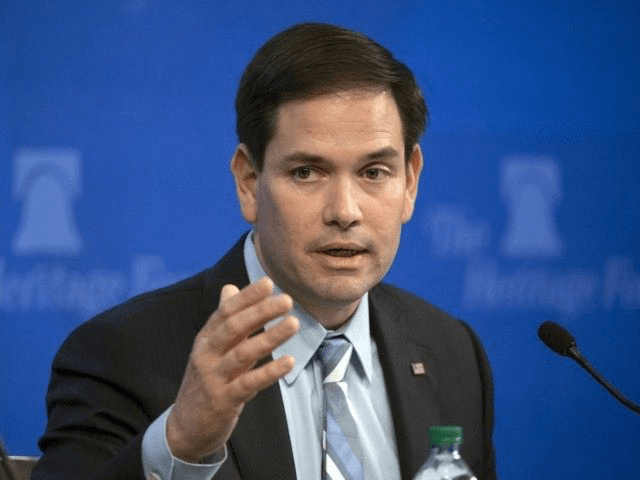Sen. Marco Rubio (R-FL) said he is a “no” vote Thursday on a China bill because it does not protect against intellectual property theft.
“I support a real #China bill And a real China bill is one that has in place safeguards to prevent billions of dollars of research being stolen I will not vote to end debate on the China bill until those safeguards are in place,” he tweeted:
Rubio spoke Monday to Breitbart News’s Matt Boyle about the bill in which he said the Chinese Communist Party (CCP) senses an “opportunity” with Democrat President Joe Biden in the White House regarding the legislation:
Rubio pointed to bipartisan legislation the U.S. Senate is considering this week called the Endless Frontier Act as an example of the United States being weak in the face of Chinese aggression. While he said it is “good” that senators from both parties are teaming up on the bill—which is designed to counter long-term efforts by the CCP to engage a number of industries and cutting edge fields of technology for its purposes by pumping more than $100 billion into U.S. research institutions—he is concerned that the bill does not have proper safeguards to prevent the research that would be done as a result of that funding from falling, again, into the hands of Chinese Communist Party officials.
“Here’s the problem,” he told Boyle of the bill, “The problem is it pours all this money into research and development. But as of today, and I hope that will change, it doesn’t have safeguards in place to keep that from being stolen.”
“But imagine if you’re trying to say, ‘ok so America is now going to spend $150 billion on research through universities that we already have our claws in. That’s great. We’ll just steal it. Go ahead and spend your money, and we’ll steal your research. We get it for free,’” Rubio continued. “It’s crazy. It’s nuts. So that’s the problem we’re having, these things of that nature.”
“And the reason it’s happening is because universities have ins with the administration and they’re saying, ‘hey don’t put in a lot of restrictions or safeguards because it’s going to slow down our research.’ Well, that’s crazy,” Rubio said. “It would be faster for me to get on an airplane if I didn’t have to go through TSA too, but we have to do it. We have to have safeguards. So what’s that they sense.”

COMMENTS
Please let us know if you're having issues with commenting.